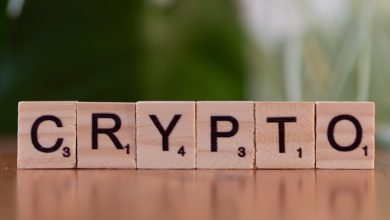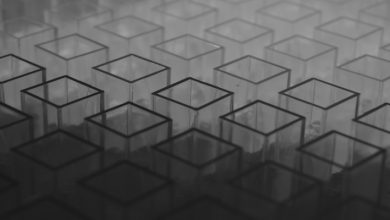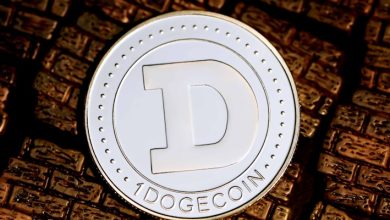What Are DAOs and How Do They Work?

- Understanding the concept of DAOs
- The principles behind Decentralized Autonomous Organizations
- Exploring the inner workings of DAOs
- How DAOs are revolutionizing decision-making processes
- The role of smart contracts in DAO operations
- Challenges and opportunities in the world of decentralized autonomous organizations
Understanding the concept of DAOs
Understanding the concept of decentralized autonomous organizations (DAOs) is essential in grasping how they operate in the digital landscape. DAOs are essentially entities that operate through smart contracts on a blockchain network, allowing for decentralized decision-making and governance. This means that DAOs are not controlled by a central authority, but rather by the consensus of their members.
One key aspect of DAOs is their ability to automate certain processes through the use of smart contracts. These contracts are self-executing agreements with the terms of the agreement directly written into code. This automation allows for transparent and efficient decision-making within the organization, as well as ensuring that all members adhere to the rules set forth by the DAO.
DAOs are typically governed by a voting system, where members can propose and vote on various actions or decisions within the organization. This democratic approach to governance ensures that all members have a say in how the DAO operates, making it a truly decentralized entity. Additionally, DAOs often utilize tokens as a means of voting and governance, with members holding a certain number of tokens having proportional voting power.
Overall, understanding DAOs involves recognizing their decentralized nature, their use of smart contracts for automation, and their democratic governance structure. By embracing these concepts, individuals can better comprehend how DAOs function and the potential they hold in revolutionizing traditional organizational structures.
The principles behind Decentralized Autonomous Organizations
Decentralized Autonomous Organizations, or DAOs, operate based on a set of principles that distinguish them from traditional centralized organizations. These principles include transparency, autonomy, and efficiency.
Transparency is a key aspect of DAOs, as all transactions and decision-making processes are recorded on a public ledger for anyone to see. This ensures accountability and trust among members of the organization.
Autonomy is another important principle of DAOs, as they operate without the need for a central authority figure. Instead, decisions are made collectively by members through voting mechanisms built into the organization’s code.
Efficiency is also a core principle of DAOs, as they are designed to streamline processes and eliminate the need for intermediaries. This reduces costs and speeds up decision-making, making the organization more agile and responsive to changes in the market.
Overall, the principles behind DAOs set them apart as innovative and disruptive entities that have the potential to revolutionize traditional organizational structures. By embracing transparency, autonomy, and efficiency, DAOs offer a new way of organizing and collaborating that is decentralized, democratic, and highly effective.
Exploring the inner workings of DAOs
Exploring the inner workings of DAOs, or decentralized autonomous organizations, provides a fascinating glimpse into the future of governance and decision-making. DAOs are essentially smart contracts built on blockchain technology that enable a group of individuals to make collective decisions without the need for a central authority. These organizations operate based on pre-defined rules and protocols encoded into the blockchain, allowing for transparent and secure decision-making processes.
One key aspect of DAOs is their use of tokens as a form of voting power. Token holders can participate in governance by voting on proposals, which can range from funding new projects to changing the organization’s bylaws. The more tokens a member holds, the more influence they have over the decision-making process. This system incentivizes participation and aligns the interests of members with the overall goals of the organization.
Another important feature of DAOs is their ability to execute actions automatically based on predetermined conditions. For example, if a proposal receives a certain percentage of votes in favor, funds can be automatically released from the organization’s treasury to fund the project. This automation reduces the need for trust among members and ensures that decisions are carried out efficiently and transparently.
In addition to their innovative governance structure, DAOs also offer a high degree of security and resilience. Because they are built on blockchain technology, DAOs are resistant to censorship and tampering. Transactions are recorded immutably on the blockchain, making it nearly impossible for bad actors to manipulate the system. This level of security is essential for ensuring the trust and integrity of the organization.
Overall, exploring the inner workings of DAOs reveals a new paradigm for organizing human activity in a decentralized and transparent manner. By leveraging blockchain technology and smart contracts, DAOs offer a glimpse into a future where governance is more participatory, efficient, and secure. As these organizations continue to evolve and grow, they have the potential to revolutionize the way we collaborate and make decisions on a global scale.
How DAOs are revolutionizing decision-making processes
Decentralized Autonomous Organizations (DAOs) are transforming decision-making processes by enabling a more democratic and transparent approach to governance. DAOs utilize blockchain technology to create a decentralized system where decisions are made collectively by members rather than a centralized authority.
One of the key ways in which DAOs are revolutionizing decision-making is through the use of smart contracts. Smart contracts are self-executing contracts with the terms of the agreement directly written into code. This allows for automated decision-making processes based on predefined rules and criteria.
DAOs also provide a platform for members to participate in decision-making regardless of their geographical location. This inclusivity fosters a diverse range of perspectives and expertise, leading to more well-rounded and informed decisions.
Furthermore, DAOs promote transparency by recording all decisions and transactions on the blockchain, which is publicly accessible and immutable. This level of transparency builds trust among members and ensures accountability in the decision-making process.
In conclusion, DAOs are revolutionizing decision-making processes by promoting democracy, transparency, and inclusivity. By leveraging blockchain technology and smart contracts, DAOs are paving the way for a more efficient and equitable governance model in various industries.
The role of smart contracts in DAO operations
Smart contracts play a crucial role in the operations of Decentralized Autonomous Organizations (DAOs). These self-executing contracts are written in code and automatically enforce the terms of an agreement when predetermined conditions are met. In the context of DAOs, smart contracts are used to govern the organization’s decision-making processes, manage funds, and facilitate transactions without the need for intermediaries.
One of the key advantages of using smart contracts in DAO operations is the transparency and immutability they provide. Once deployed on a blockchain, smart contracts cannot be altered, ensuring that the rules governing the DAO are followed consistently. This transparency helps build trust among members of the organization and reduces the risk of fraud or manipulation.
Moreover, smart contracts enable DAOs to operate autonomously, without the need for centralized control. By codifying the rules and procedures of the organization into smart contracts, DAOs can automate various functions, such as voting on proposals, distributing rewards, and executing transactions. This autonomy not only increases efficiency but also reduces the potential for human error or bias in decision-making processes.
Additionally, smart contracts help DAOs overcome the challenges associated with traditional legal frameworks. Since DAOs are decentralized and operate across borders, navigating regulatory requirements can be complex. Smart contracts provide a way to enforce agreements in a trustless manner, without relying on legal systems that may vary from one jurisdiction to another.
Overall, the role of smart contracts in DAO operations is essential for creating a decentralized, transparent, and efficient organizational structure. By leveraging the power of blockchain technology, DAOs can streamline decision-making processes, enhance security, and foster trust among members, ultimately paving the way for a new paradigm of decentralized governance.
Challenges and opportunities in the world of decentralized autonomous organizations
Decentralized autonomous organizations (DAOs) present both challenges and opportunities in the rapidly evolving landscape of blockchain technology. One of the main challenges facing DAOs is the lack of regulatory clarity around their operations. As these organizations operate without a central authority, it can be difficult to hold them accountable for any wrongdoing or malpractice. This uncertainty can deter potential participants and investors from fully engaging with DAOs.
On the other hand, DAOs offer a unique opportunity to revolutionize traditional business models by enabling transparent, secure, and efficient decision-making processes. Through smart contracts and blockchain technology, DAOs can automate various functions, reducing the need for intermediaries and streamlining operations. This can lead to cost savings, increased trust among participants, and greater innovation within the organization.



